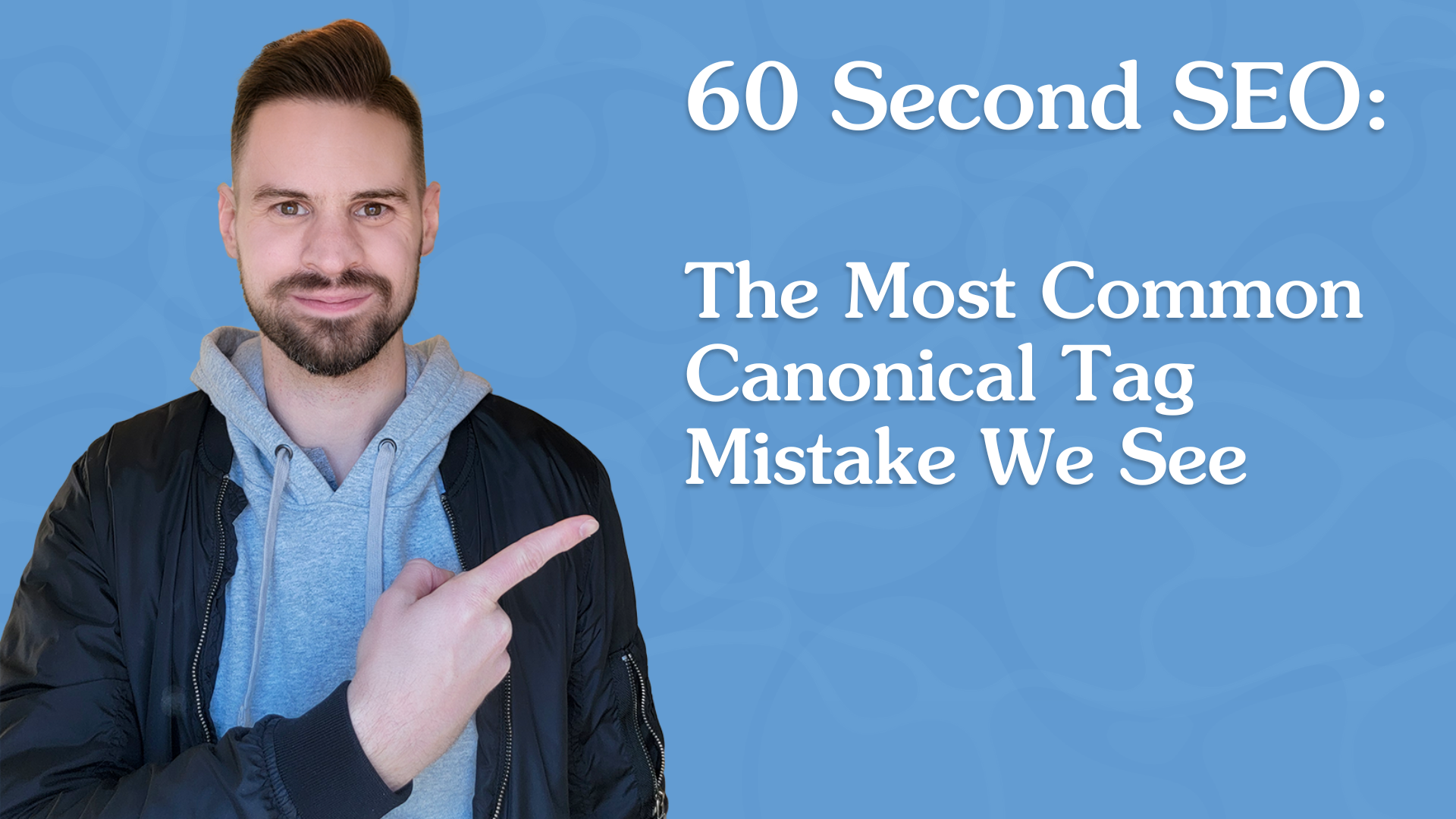Home / SEO / Canonical Tag Mistake: Pointing A Canonical To The First Page Of A Series
Canonical Tag Mistake: Pointing A Canonical To The First Page Of A Series

Contents Overview
Transcription:
Hi, I’m Chris Long, and welcome to another episode of 60 Second SEO.
Today we’re going to go over one of the most common canonical tag mistakes that we see.
Here I’m on the Asos website on their page for women’s dresses, and I’m on the first page of a category page series. So I’m going to click to the second page of the series. I’m going to click the “Load More” button, and you can see page=2 gets appended to the end of the URL. I’m on the second page of the series.
So what I’m going to do now is check the canonical tag. Right click “Inspect”. I’m going to search for canonical. And here you can see that they’ve actually referenced their canonical tag as the first page of the series. And you’re actually going to want to avoid this.
It’s actually defined in Google’s documentation, a blog post they wrote years ago, where they say one of the most common mistakes that’s made is the canonical tag points back to the first page of the series. And you’re going to want to avoid this because really the canonical tag is meant to consolidate duplicate content.
However, page two, page three, page four, so on and so forth, technically isn’t duplicate content. It’s all going to contain unique products, unique blog posts, whatever the case might be. And so you’re actually going to want to use self-referential canonical tags to signal to Google that each individual page in the series is unique and signal to Google that it’s okay for Google to actually crawl through those individual pages and not consolidate all the content back to the first page of the series.
About Chris Long
MORE TO EXPLORE
Related Insights
More advice and inspiration from our blog
How To See When ChatGPT Is Quoting Your Content By Analyzing Log Files
The way people find and consume information is shifting fast, and...
Dan Hinckley| July 25, 2025
How AI Powered Search Is Changing Marketing, and What You Can Do About It.
Imagine you need a new washer/dryer. In the past you’d read...
Dan Hinckley| July 25, 2025
How To Find Pages On Your Site That ChatGPT May Be Hallucinating
As AI chatbots like ChatGPT become increasingly popular, more users are...
Dan Hinckley| July 25, 2025





